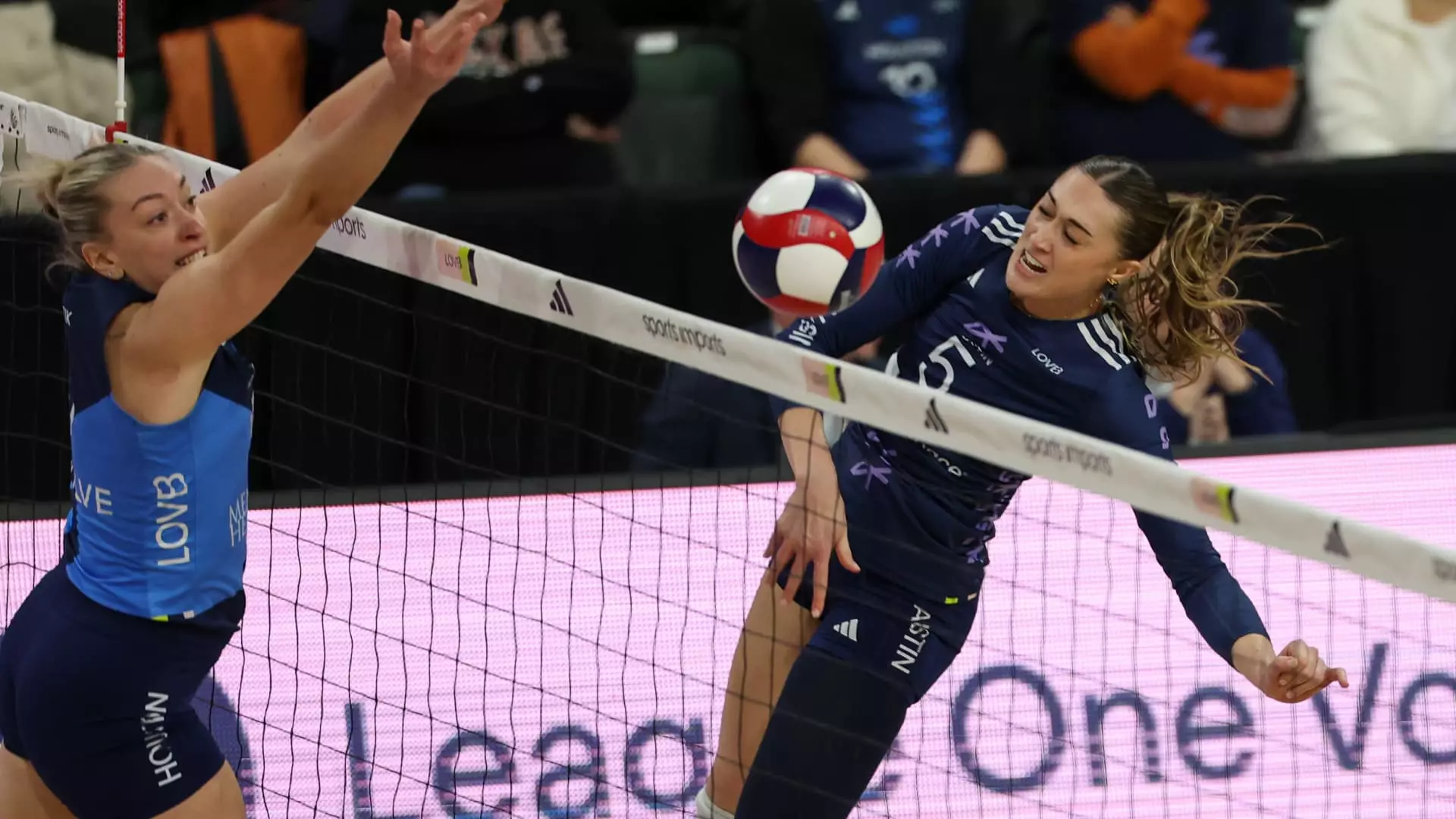The recent multiyear media rights agreement between Versant and League One Volleyball (LOVB) signals a notable shift in the sports broadcasting landscape, especially regarding women’s sports. Yet, beneath the surface of excitement and strategic growth lies a complex web of issues that threaten to undermine the true potential of women’s athletics. While the deal ostensibly offers a platform for volleyball to flourish, it reveals a deeper tension between commercial interests and authentic empowerment.
This partnership, primarily focused on primetime showcasing on the USA Network, is undeniably a strategic move. By securing exclusive rights to “Match of the Week” and playoffs, Versant amplifies women’s volleyball’s visibility. However, one must question whether such visibility translates into genuine progress or simply reinforces existing societal stereotypes. The primetime slot, a coveted real estate, risks commodifying women’s sports, reducing athletes to spectacle rather than acknowledging their talent and dedication. This shift raises concerns about whether the sport is being elevated for societal benefit or merely exploited for entertainment and advertising dollars.
Are Women’s Sports Truly Advancing?
The evident surge in volleyball participation, both at high school and college levels, highlights an encouraging trend of growing interest among young women. High school participation reaching nearly half a million girls reflects a movement toward empowerment through sport. Similarly, the NCAA’s record-breaking viewership signifies a broader cultural acceptance and recognition of women’s athletic achievements. Yet, despite these promising signs, the underlying question remains: are these gains enough to challenge the entrenched gender biases in sports media and beyond?
While ESPN’s existing broadcast rights to LOVB and other women’s sports showcase an increasing appetite, the industry’s approach still often frames women’s sports as secondary. The fact that Versant, a new player expected to spin off from a large corporate conglomerate, is seeking to carve out its niche in women’s sports should be celebrated—but it also prompts skepticism. Does corporate backing translate to lasting change, or does it risk turning women’s sports into a lucrative side project, disconnected from the broader fight for equality? The commercial interests are undeniable, and without deliberate efforts to prioritize fair coverage, there is genuine concern that women’s sports could become just another marketing trend.
The Commercialization Dilemma
The digital and television landscape’s push towards monetization often commodifies athletes’ labor, especially in sports like volleyball that are still fighting for equitable recognition. Versant’s deal, which reportedly involves hundreds of millions in other sports rights, underscores how lucrative women’s sports can be—if harnessed correctly. However, the danger lies in framing this growth solely through a profit lens, sacrificing authenticity and long-term sustainability.
The partnership’s focus on prime-time slots and broad visibility might appear progressive, but it also risks erasing the grassroots foundations that made volleyball popular in the first place. How much of this visibility represents genuine support for the sport and its athletes, and how much is strategic branding? If the core societal issues around gender equity, pay disparities, and media representation remain unaddressed, these media deals risk becoming symbolic gestures rather than catalysts for meaningful change.
Is the Industry Responding Adequately?
While the expanding audience numbers and record-breaking engagement levels are promising indicators, they also serve as a mirror reflecting the industry’s cautious response. The fact that the NCAA tournament garnered such high viewership indicates a hunger for women’s sports, yet it exposes the industry’s reluctance to fully invest in sustainable coverage beyond short-lived attention spikes.
Furthermore, the involvement of major corporations like Comcast and NBCUniversal complicates the narrative. The spinoff of Versant from Comcast might suggest a new wave of independent, focused investment. But it also raises questions about whether this is a strategic move for corporate profit or a genuine attempt to elevate women’s sports. Without structural reforms—such as equitable sponsorship deals, increased athlete compensation, and broader media coverage—these partnerships remain superficial steps.
In totality, the deal represents both an opportunity and a challenge. It underscores the potential of women’s volleyball to thrive, but also exposes the ongoing struggle to ensure that growth benefits athletes and fans alike, rather than just corporate agendas. If society genuinely values gender equality in sports, these media shifts must be accompanied by substantive policy changes, grassroots support, and cultural shifts that recognize women’s sports as equal—if not superior—in both passion and athleticism. Only then can this new media deal be truly transformative rather than temporarily advantageous.


Leave a Reply